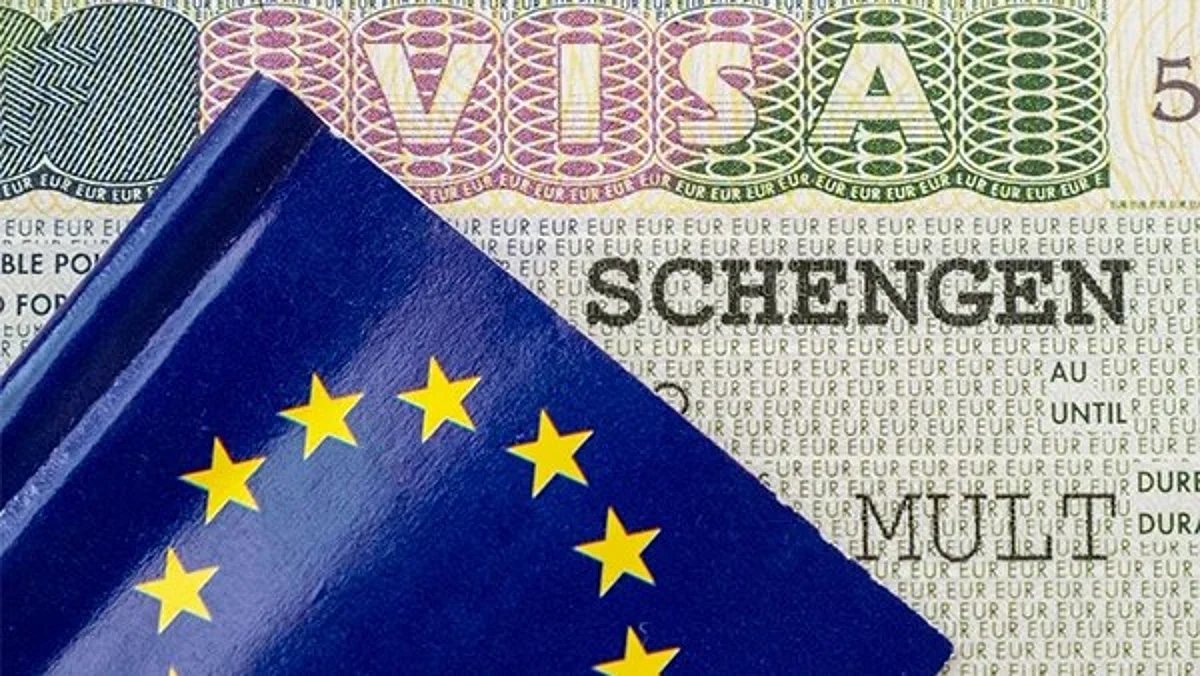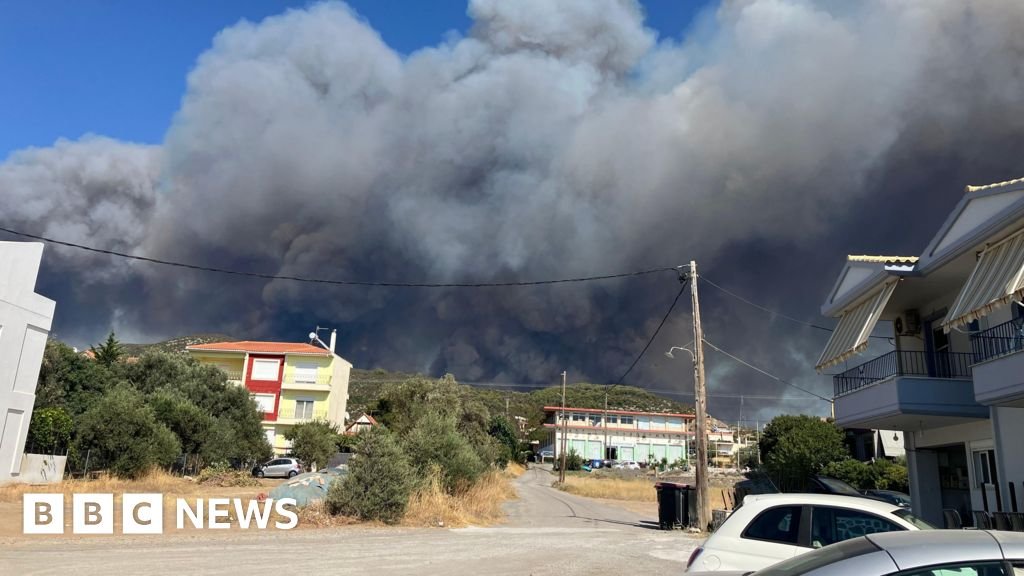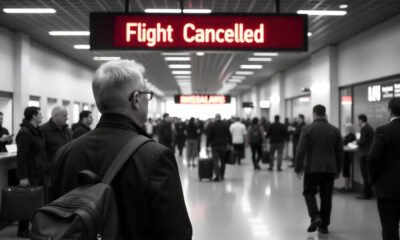Tips & Advices
UK Issues New Travel Advisory For Turkey With Urgent Alert On Border Security And Strict Entry Requirements

Friday, August 1, 2025
The UK has issued a new travel advisory for Turkey in response to escalating security concerns near the Syria-Turkey border and the enforcement of strict entry and passport regulations that could impact British travelers. The advisory includes a clear warning to avoid travel within 10 kilometers of the Syrian border due to ongoing conflict and terrorism threats, while also emphasizing the importance of meeting Turkey’s strict passport validity rules and visa-free stay limits. With the added risks of summer wildfires and potential invalidation of travel insurance for those ignoring official guidance, the UK government urges all travelers to review the updated requirements before departure.
UK Issues New Travel Advisory for Turkey With Urgent Alert on Border Security and Strict Entry Requirements
The United Kingdom has issued a new travel advisory for Turkey, urging British citizens to exercise heightened caution when visiting the country, especially near its volatile border with Syria and during the high-risk summer wildfire season. The Foreign, Commonwealth & Development Office (FCDO) has updated its guidance to include a strong warning on regional security near conflict zones, strict entry and passport requirements, insurance concerns, and critical information for families traveling with children.
FCDO Strongly Advises Against Travel Near the Syria-Turkey Border
At the heart of the advisory is a clear and unequivocal warning: the FCDO advises against all travel to within 10 kilometers of the Turkey-Syria border. This area remains highly volatile due to ongoing military operations, unrest, and the persistent threat of terrorist activity.
Although popular Turkish tourist cities such as Istanbul, Antalya, and Bodrum remain unaffected, the southeast border region is considered dangerous and unpredictable. The UK government warns that venturing into this zone not only poses a serious safety threat but may also invalidate your travel insurance policy if the advice is ignored.
Summer Wildfires Add to Risk Factors
In addition to conflict zones, the advisory highlights the increased frequency and intensity of wildfires across Turkey during the summer season. These fires can spread rapidly, particularly in forested and coastal areas that are popular with tourists.
Travelers are urged to monitor local media, follow the instructions of local authorities, and stay informed through hotel staff or accommodation providers. The FCDO emphasizes that wildfires can lead to sudden road closures, evacuations, and disruptions to transport and travel plans. Holidaymakers should remain flexible and have emergency contact numbers readily accessible in case of unexpected evacuation orders.
Insurance Warning: Your Policy May Be Invalid
One of the most critical points in the advisory concerns travel insurance coverage. The FCDO explicitly states that your travel insurance may be rendered invalid if you travel against its advice, particularly into regions like the Syrian border zone.
British citizens are encouraged to purchase comprehensive travel insurance that covers medical emergencies, evacuation, trip cancellation, and natural disasters such as wildfires. Furthermore, the insurance should align with your entire travel itinerary, including any planned high-risk activities like hiking, boating, or rural excursions.
Travelers should carefully read the fine print and consult their insurance provider to verify what is—and is not—covered in case of emergencies or travel disruptions.
Passport Validity: 150-Day Rule Strictly Enforced
In its latest update, the FCDO draws attention to strict passport validity rules now being enforced by Turkish authorities. If you’re traveling on a full British citizen passport, the document must be:
- Valid for at least 150 days from the date of arrival in Turkey
- Have at least one blank page for stamps
Travelers who fail to meet these conditions risk being denied entry into the country. Moreover, anyone attempting to enter Turkey using a passport that has been reported lost or stolen—even if later recovered—will also be refused entry.
The UK government strongly advises all travelers to check their passport expiration date well in advance of travel and renew their documents if needed. If entering through a land border, travelers must also ensure that immigration officials properly stamp and date the passport at the crossing point.
Failure to comply with these measures could result in serious complications, including fines, detention, or deportation.
Residency Rules for British Citizens Living in Turkey
The advisory outlines additional rules for British nationals residing in Turkey. If you hold residency status, your passport must be valid for at least six months from your date of arrival, which differs from the 150-day requirement for tourists. British residents should carry proof of their Turkish residency permit when traveling internally or dealing with local authorities.
Visa-Free Travel: 90 Days in Any 180-Day Period
British tourists visiting Turkey can continue to enter without a visa for up to 90 days within any rolling 180-day period. This allows flexible short-term stays for tourism or business purposes.
However, travelers planning to remain in Turkey for more than 90 days must apply for a short-term residence permit before the 90-day limit is reached. Overstaying this limit without the correct documentation can lead to penalties, travel bans, or deportation.
If you are unsure about your eligibility, or if you plan to work, study, receive medical treatment, or undertake long-term stays, the FCDO recommends contacting the Turkish Embassy or Consulate General in the UK before departure to clarify your visa requirements.
Special Cases: Employment, Study, or Medical Treatment
British nationals traveling to Turkey for employment, education, or medical purposes must ensure that they apply for the appropriate visa or permit before travel. Attempting to enter the country under the visa-free scheme for activities that require formal authorization can result in denied entry or removal from Turkish territory.
Those planning to work in Turkey must also ensure they possess the proper work permit, approved by the Turkish Ministry of Labour and Social Security. Entering Turkey with the intent to work without a permit is illegal and carries heavy penalties.
Family Travel and Dual National Children
A lesser-known but important part of the new advisory deals with dual-national children, particularly those holding both British and Turkish nationality.
If you’re leaving Turkey with a child aged 18 or younger who holds dual citizenship, you may be asked by Turkish border officials to provide written consent from the non-traveling Turkish parent. This requirement is aimed at preventing child abduction or custody-related disputes.
Families are advised to carry a notarized consent letter from the Turkish parent and ensure that both the child and accompanying adult have all relevant identification and travel documents ready. Failing to meet these criteria could result in delays or denied exit at the border.
Land Borders and Entry Stamp Protocols
If entering Turkey by land—for example, from neighboring Greece, Bulgaria, or Georgia—travelers must ensure their passport is officially stamped and dated at the border checkpoint.
Neglecting to get this stamp could cause problems during your stay or departure, as Turkish immigration authorities will have no formal record of your entry. Always double-check with border officials and insist on the stamp before continuing your journey.
Travelers Advised to Research Destinations Thoroughly
The FCDO encourages British citizens to conduct careful research about the specific regions they intend to visit within Turkey. Not all parts of the country carry the same level of risk. While tourist-heavy provinces like Izmir, Antalya, and Istanbul are generally considered safe, remote areas near the eastern and southeastern border zones are much more volatile.
Consult local travel forums, review up-to-date media coverage, and stay connected to the UK government’s online travel alerts. All travelers are also urged to register their trip with the FCDO’s consular services to receive real-time updates and emergency assistance if required.
Final Reminders: Stay Informed, Prepared, and Insured
As tensions rise in certain regions and environmental risks like wildfires persist, the UK government is calling for heightened vigilance among travelers heading to Turkey this summer and beyond. Key reminders include:
- Avoid all travel within 10km of the Syria border
- Obtain comprehensive travel insurance that covers emergencies and complies with FCDO advice
- Check passport validity and visa-free stay limits well before travel
- Know your rights and obligations when traveling with dual-national children
- Be aware of wildfire alerts and local authority instructions
The UK has issued a new travel advisory for Turkey due to increased security risks near the Syria border and strict enforcement of entry and passport rules. Travelers are urged to comply with these measures to ensure their safety and avoid travel disruptions.
Travelers who ignore FCDO guidance may find themselves in legal or logistical difficulties, especially if their travel insurance becomes void. The new advisory reflects the UK’s effort to protect its citizens and ensure informed, safe travel abroad in an evolving geopolitical landscape.
Tips & Advices
Say goodbye to visa stickers as Schengen Visa goes digital by 2028

The European Union is set to transform the way travelers obtain Schengen visas, moving to a completely digital system that will eliminate traditional paper applications and physical visa stickers by 2028. This major overhaul promises to streamline the application process and enhance security measures.
Schengen visa allows non- EU nationals to travel within the Schengen Area, which consists of a group of 29 European countries, for stays of up to 90 days within a 180-day period.
According to a report by The Economic Times, the new system will replace the familiar visa sticker with a secure, encrypted 2D digital barcode, marking a significant leap toward technological innovation in travel documentation.
How the digital system works
The digital transformation got its first real-world test during the 2024 Paris Olympics, where France successfully issued 70,000 digital Schengen visas featuring barcodes. Under the new system, travelers will simply scan these barcodes at border checkpoints, giving immigration officials instant access to personal and visa information through a centralized EU database.
The fully online experience will allow applicants to upload required documents, track their application status in real-time, and complete fee payments digitally. Once approved, travelers receive a digitally signed barcode visa. While first-time visitors to Europe must still provide biometric data in person, subsequent applications will follow a more streamlined process.
Application process remains structured
Despite going digital, the fundamental application steps remain consistent:
Embassy selection: Applicants must choose the embassy of their primary destination country. For multi-country trips, apply through the nation where you’ll spend the most time, or if time is equal, the first country of entry. Most countries work with VFS Global, though Spain uses BLS International in India, and France requires appointments through its Démarches Simplifiées platform.
Document requirements: Essential documents include a valid passport with six months validity and two blank pages, the completed application form, photographs, travel insurance with minimum €30,000 coverage, flight and accommodation bookings, a cover letter, and financial documentation including 3-6 months of bank statements and salary slips or International Transaction Reporting System (ITRs).
Biometric data collection: First-time applicants must provide fingerprints and photographs, with data stored in the EU’s Visa Information System. This requirement is waived if biometric information was collected within the previous 59 months.
Fee structure: Standard visa fees remain at approximately €80 for adults and €40 for children aged 6-12, with no charge for those under 6. Service fees through VFS or BLS range from ₹1,800 to Rs 2,200.
Processing timeline: Typical processing takes 15 calendar days, though this can extend to 30 or 60 days during busy periods or for complex applications.
Strategic tips for Indian applicants
Experts recommend applying 30-60 days before travel, as applications are accepted up to six months in advance. However, last-minute applications within 15 working days should be avoided to minimise delay risks.
For faster processing, consider applying through embassies like Lithuania, Latvia, or Estonia, which often complete reviews within 7-10 days and maintain lower rejection rates.
Some embassies, particularly Germany and France, may require in-person interviews. Applicants should be prepared to clearly explain their travel itinerary, financial situation, and intention to return to India.
A significant change affects German visa applications: starting July 1, 2025, Germany eliminated informal appeals, requiring all rejected applications to go through formal legal procedures.
Indian nationals who have successfully used two Schengen visas within three years may now qualify for multi-year validity visas (2 or 5 years) under the EU’s “cascade” regime, offering greater convenience for frequent travelers.
The digital transformation represents the EU’s commitment to modernizing travel processes while maintaining security standards, promising a more efficient experience for millions of travelers worldwide.
Tips & Advices
Holiday To Greece, Turkey, France Is Now Ruining For Devastating Wildfires, Here Is How You Can Minimize Impact, Know Refund Policies, Travel Insurance and More

Saturday, August 2, 2025
Greece, Turkey, and France are among several popular holiday destinations in Europe currently struggling with devastating wildfires following record-breaking heatwaves. Tourists and business travelers alike have had their travel plans disrupted or are now reconsidering their journeys due to safety concerns. Travelers are left questioning their options as wildfires continue to threaten these picturesque regions.
Wildfires across Europe this summer have increased dramatically, with destinations including mainland Greece, Greek islands like Rhodes and Crete, parts of Turkey, southern France, and the Balkans heavily affected. Extreme heat saw temperatures soaring to a staggering 50.5°C in Silopi, Turkey, and reaching 44°C in cities such as Athens and regions of Cyprus, intensifying the blaze and making it difficult to control.
The impact of these wildfires extends beyond the immediate destruction. For tourists planning to visit these popular holiday spots, the uncertainty regarding their travel arrangements has left many in confusion. Travelers who no longer wish to continue their trips, even if their resort has not been directly affected, face limited options if they did not purchase additional travel insurance coverage that specifically includes natural catastrophes.
How Travelers Can Minimize the Impact of Wildfires on Their Vacation
Wildfires in Europe, especially in regions like Greece, Turkey, and France, have disrupted travel plans for many tourists. While these natural disasters are beyond our control, there are proactive steps travelers can take to minimize the impact on their vacations and financial losses.
1. Stay Informed with Official Alerts
- Monitor Travel Advisories: Regularly check government websites such as the UK Foreign, Commonwealth & Development Office (FCDO) or your home country’s travel advisory for the latest updates on affected areas.
- Enable Emergency Notifications: Activate emergency alerts on your smartphone to receive real-time information about wildfires and other natural disasters.
- Follow Local Authorities: Pay attention to local news and official channels for evacuation orders and safety instructions.
2. Review and Understand Your Travel Insurance
- Check Coverage for Natural Disasters: Ensure your travel insurance policy includes coverage for cancellations or delays due to wildfires. Not all policies offer this, so it’s crucial to verify.
- Understand Policy Exclusions: Be aware that many policies do not cover “disinclination to travel”—choosing not to go due to fear of wildfires without an official travel advisory.
- Document All Communications: Keep records of all interactions with airlines, hotels, and tour operators. This documentation can be vital when filing insurance claims.
3. Prepare an Emergency Kit
- Essential Documents: Carry copies of your passport, travel insurance policy, and emergency contacts.
- Health and Safety Items: Pack medications, a first aid kit, and masks to protect against smoke inhalation.
- Communication Tools: Bring a fully charged power bank, flashlight, and a whistle.
- Evacuation Plan: Familiarize yourself with the nearest emergency exits and evacuation routes at your accommodation.
4. Maintain Flexibility in Travel Plans
- Rebook or Cancel with Providers: If your destination is affected by wildfires, contact airlines and hotels to discuss rebooking or cancellation options. Many providers offer flexibility during emergencies.
- Avoid Non-Essential Travel: If possible, postpone travel to high-risk areas until conditions improve.
- Consider Alternative Destinations: Explore other regions that are not affected by wildfires to ensure a safe and enjoyable trip.
5. Know Your Rights and Responsibilities
- Understand Airline Policies: Airlines may not compensate for delays or cancellations due to wildfires, as these are often considered extraordinary circumstances. However, they may assist with rebooking or providing accommodations.
- Tour Operator Responsibilities: If you’ve booked a package holiday, the tour operator is generally responsible for refunds or alternative arrangements if the trip is canceled due to wildfires.
- Independent Bookings: For self-arranged trips, contact each service provider directly to discuss cancellations or changes.
6. Health and Safety Precautions
- Avoid Affected Areas: Stay clear of regions currently experiencing wildfires. If you’re already in an affected area, follow evacuation orders promptly.
- Protect Against Smoke: Limit outdoor activities during high smoke conditions. Use N95 masks if available to reduce inhalation of harmful particles.
- Stay Hydrated and Cool: Drink plenty of water and stay indoors during peak heat hours to prevent heat-related illnesses.
7. Financial Considerations
- Keep Receipts: Retain all receipts for expenses incurred due to cancellations or delays, as these may be reimbursable through insurance claims.
- Understand Refund Policies: Be aware that some providers may offer vouchers instead of refunds. Review the terms and conditions before accepting.
- Consult with Insurance Providers: If unsure about coverage or claims, contact your insurance provider for clarification and guidance.
In July 2023, Rhodes witnessed several travel disruptions, prompting holiday companies such as Jet2 and Tui to cancel flights and package holidays. However, airlines like Ryanair, easyJet, and British Airways maintained most flights, placing travelers who wished to cancel without official government warnings in a challenging situation.
According to the UK’s Foreign Office travel advice, travelers typically cannot claim insurance for cancellations unless official warnings against travel are issued. However, there are some exceptions. Certain insurers permit claims if the traveler can demonstrate that the wildfire or natural disaster significantly disrupted the planned holiday location, even without a formal travel advisory.
Refund Policies for Holidays Affected by Wildfires: A Comprehensive Guide
Wildfires can significantly disrupt travel plans, particularly in regions like Europe where such events have become more frequent. Understanding your rights and the available options can help minimize financial losses and ensure a smoother experience during such unforeseen circumstances.
1. Package Holidays: Refund Entitlements
- Cancellation by Tour Operator: If the tour operator cancels the holiday due to wildfires, travelers are entitled to a full refund.
- Cancellation by Traveler: Travelers may cancel without penalty if the destination is significantly affected by wildfires, making the trip unfeasible.
- Refund Timeline: Refunds for canceled package holidays must be processed within 14 days.
2. Flights: Compensation and Assistance
- EU Regulations: Under EU Regulation 261/2004, if a flight is canceled due to wildfires, passengers are entitled to a refund or rerouting.
- Extraordinary Circumstances: Airlines are not required to provide compensation for delays or cancellations caused by extraordinary circumstances, such as wildfires.
- Care and Assistance: Regardless of compensation eligibility, airlines must provide care, including meals, refreshments, and accommodation, during delays or cancellations.
3. Accommodations: Refund Policies
- Hotel Cancellations: If a hotel cancels a reservation due to wildfires, a full refund is typically provided.
- Traveler-Initiated Cancellations: Refund eligibility depends on the hotel’s cancellation policy and the specific circumstances of the wildfire.
- Vacation Rentals: Platforms like Vrbo may offer refunds if the property is in an affected area, but this varies by host and situation.
4. Travel Insurance: Coverage and Claims
- Trip Cancellation: Standard travel insurance policies may cover cancellations if a wildfire makes the destination uninhabitable.
- Trip Interruption: If a trip is cut short due to a wildfire, insurance may cover unused trip costs and additional transportation expenses.
- Cancel For Any Reason (CFAR): CFAR policies offer greater flexibility, allowing cancellations for reasons not typically covered, such as personal discomfort due to nearby wildfires.
- Documentation: To file a claim, retain all receipts and documentation related to the cancellation or interruption.
5. Credit Card Protections
- Travel Protections: Some credit cards offer travel protections that may cover cancellations due to wildfires.
- Policy Terms: Coverage varies by card issuer and specific card benefits.
- Claim Process: Contact the credit card issuer directly to understand the claims process and required documentation.
Travel specialists suggest that travelers immediately contact their airline, tour operator, and insurance provider to explore personalized solutions. Individual companies might provide bespoke arrangements like date changes, vouchers, or partial refunds, although these are not guaranteed.
The latest data from the European Commission indicates wildfires across Europe have burned more than 290,000 hectares this year, doubling the area affected in the same period last year. The growing scale of these fires underscores the importance of travel insurance coverage, yet surprisingly, around 25% of British travelers ventured abroad without any coverage in the past year, leaving them vulnerable in the face of emergencies.
For tourists with comprehensive travel insurance, the news is more reassuring. Typically, costs incurred due to evacuations, medical emergencies, and trip curtailment or cancellation resulting from wildfires will be covered under standard travel insurance policies. Specialists advise travelers to document all interactions with hotels, airlines, and local authorities to support future claims.
Travelers without insurance still have some recourse. If airlines or holiday providers cancel bookings, travelers are usually entitled to refunds directly from these companies. However, protection schemes like the UK’s ATOL primarily offer assistance only if a travel provider goes bankrupt. They do not cover cancellations, delays, or disruption caused by wildfires or other extraordinary events.
Under UK Civil Aviation Authority (CAA) rules, passengers affected by flight delays or cancellations departing from UK airports—or arriving in the EU via UK airlines—must be provided with basic care, including food, drinks, and accommodation when delays exceed specified durations. Although passengers can expect airlines to reschedule canceled flights without additional charges, compensation for wildfire-related delays or cancellations is generally not applicable since wildfires are categorized as extraordinary events.
Impact on Tourism and Business Travel:
The wildfires significantly affect tourism and business travel sectors, potentially causing economic repercussions for hotels, tour operators, and airlines due to booking cancellations and operational disruptions. Destinations heavily reliant on tourism, such as the Greek islands and parts of Turkey, could suffer longer-term impacts on their local economies, particularly small businesses and hospitality services.
Quick Tips for Travelers:
- Always verify official travel advice from your government’s foreign travel advisory website before making decisions.
- Purchase comprehensive travel insurance that specifically includes natural disaster coverage, preferably at booking time.
- Keep open communication with airlines and hotels; flexible rebooking policies might be available.
- Maintain detailed records of your travel documents, bookings, and interactions with companies for insurance claims.
- Register with your country’s embassy or consulate when traveling abroad to ensure assistance in emergencies.
Additionally, travelers should keep themselves informed via local news and official government websites on conditions and safety guidelines at their intended destinations.
For future trips, tourists should consider destinations less prone to extreme weather events, diversify holiday plans, or travel during off-peak seasons when wildfire risks are lower. Ensuring adequate preparation and awareness of insurance terms can provide peace of mind amid increasing uncertainties caused by climate-related disasters.
As the wildfire season continues, vigilance and careful planning will be essential for travelers visiting Europe’s picturesque but vulnerable regions. While enjoying a relaxing summer vacation is the goal for many, safety should always remain a top priority. In these challenging circumstances, well-informed tourists who proactively seek out the latest advice and understand their options will be best prepared to navigate any unexpected disruptions.
Tips & Advices
What to do if holiday affected, according to experts

BBC News
It’s been a scorching summer so far in parts of Europe, and with it has come an outbreak of wildfires – and warnings of more.
Mainland Greece, some Greek islands, Turkey, France and the Balkans have all been affected in recent weeks. This has come alongside a heatwave – with 50.5C recorded in Silopi, Turkey in late July, and 44C in both Athens and Cyprus.
So what should you do if you have a holiday booked for one of these destinations?
Crucially, the Foreign Office says it’s safe to travel to all of them – for now.
But if you’re worried your holiday might still be subject to delays or cancellations – or you’re thinking of cancelling it yourself – BBC News has spoken to a range of experts to look at where you stand.
If it’s safe to travel but you’d prefer not to, what can you do?
If you’re concerned your planned getaway may be prone to wildfires and you no longer want to go – say because a wildfire has happened near your resort, even if it hasn’t directly damaged it – you may have options.
Some travel insurance providers do allow you to buy additional coverage in the event of natural catastrophes like wildfires, should they occur near your holiday destination – such as within a 20km radius.
But if you have not paid for this additional cover and decided that you no longer want to travel, or wish to come home early, and the Foreign Office says it is safe to travel, then you likely won’t be able to claim for the costs of cancellation via insurance.
“There needs to be reasonable evidence as to why you can’t go [or need to leave],” explains Rhys Jones. “I think uneasiness or unhappiness about the country [isn’t enough].”
During the Rhodes wildfires in 2023, Jet2 and Tui cancelled a raft of flights but Ryanair, easyJet and British Airways largely continued running. Some airlines cancelled their package holidays, but not their flights.
In this case – and with any similar situations this summer – the usual advice is to chat to your airline and hotel, as applicable, because bespoke solutions may be offered for your circumstances.
Claiming on travel insurance
According to European Commission data, there has been a 13% increase since last week in the total area burnt by wildfires, with more than 290,000 hectacres burnt so far this year in Europe – more than double the figure at the same time last year.
If you have travel insurance then most disruption to your trip caused by wildfires should be covered under your standard policy, says Rhys Jones, a travel insurance specialist at GoCompare.
“Any sort of curtailment or cancellation of your trip as as a result of wildfires – whether that be you can’t travel to your destination or you have to come home early – should be covered.”
Costs imposed due to other emergency measures such as evacuation, relocation or medical expenses should also be included, he adds. In Crete early last month, 5,000 people, many tourists, were temporarily evacuated during wildfires.
Under a standard policy, Mr Jones says there usually needs to be official advice not to travel from the Foreign Office or another authority, to make a successful insurance claim for a cancellation.
But some travel insurance providers will cover you if you decide against embarking on your trip before the Foreign Office issues such advice, explains Jo Rhodes, a travel specialist at Which?
“For example, if travel has been disrupted or the specific area you’re staying in is being affected, the best thing to do is to contact the insurer to check where you stand – and make sure you do this before cancelling any bookings.”
What if you don’t have travel insurance?
Around one in four Britons who went on an overseas holiday in the last 12 months did so without travel insurance, according to research published by The Travel Association (ABTA), in May.
“If you have no insurance but your holiday provider or airline has cancelled bookings, you may still be eligible for a refund from these companies,” Jo Rhodes says.
Holidaymakers often look out for package holidays which are Air Travel Organisers’ Licensing (Atol) protected – but this is not a form of travel insurance.
The Atol scheme only protects you if the company providing your holiday goes bust. They will help you get home if you’re already aboard a flight, or make a claim for a refund if you are yet to travel.
The scheme does not allow you to claim compensation for a cancelled trip or flight, or delays, caused by wildfires.
Where you stand with your airline
You’re covered by UK law if you’re departing from a UK airport on any airline, or arriving in the EU on a UK airline, the Civil Aviation Authority (CAA) says.
This means airlines must provide you with care and assistance if your flight is delayed by two or three hours depending on the distance – including supplying food and drink vouchers and a refund on phone call costs, if necessary.
And, the CAA explains, if your flight is cancelled and rescheduled to another day, your airline must provide accommodation and transport to it.
However, you’re unlikely to get compensation for wildfire or extreme heat-related disruption, because that would probably be considered an “extraordinary circumstance” so would not be classed as the airline’s fault.
If you’re delayed by more than five hours and you no longer wish to travel, you may be able to get a refund from your airline though, according to the CAA.
The body makes clear that if your flight is cancelled, you might have to wait a while but your airline is required to get you to your destination.
-

 Brand Stories2 weeks ago
Brand Stories2 weeks agoBloom Hotels: A Modern Vision of Hospitality Redefining Travel
-

 Brand Stories1 week ago
Brand Stories1 week agoCheQin.ai sets a new standard for hotel booking with its AI capabilities: empowering travellers to bargain, choose the best, and book with clarity.
-

 Destinations & Things To Do2 weeks ago
Destinations & Things To Do2 weeks agoUntouched Destinations: Stunning Hidden Gems You Must Visit
-

 Destinations & Things To Do1 week ago
Destinations & Things To Do1 week agoThis Hidden Beach in India Glows at Night-But Only in One Secret Season
-

 AI in Travel2 weeks ago
AI in Travel2 weeks agoAI Travel Revolution: Must-Have Guide to the Best Experience
-

 Brand Stories4 weeks ago
Brand Stories4 weeks agoVoice AI Startup ElevenLabs Plans to Add Hubs Around the World
-

 Brand Stories3 weeks ago
Brand Stories3 weeks agoHow Elon Musk’s rogue Grok chatbot became a cautionary AI tale
-

 Asia Travel Pulse4 weeks ago
Asia Travel Pulse4 weeks agoLooking For Adventure In Asia? Here Are 7 Epic Destinations You Need To Experience At Least Once – Zee News
-

 AI in Travel4 weeks ago
AI in Travel4 weeks ago‘Will AI take my job?’ A trip to a Beijing fortune-telling bar to see what lies ahead | China
-

 Brand Stories4 weeks ago
Brand Stories4 weeks agoChatGPT — the last of the great romantics













You must be logged in to post a comment Login